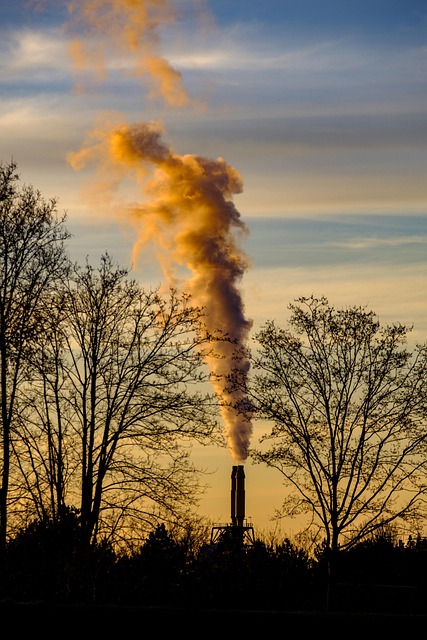TL;DR:
Accurate translation of Environmental Impact Assessments (EIAs) is critical for UK authorities, as mistranslation can lead to regulatory issues and misinformed decisions. Professional translation services specializing in environmental terminology are essential to maintain the integrity of EIA documents, ensuring clear communication of ecological data across languages while adhering to UK and global standards. These services prevent misinterpretations, enhance decision-making, and ensure compliance, ultimately protecting project reputations and facilitating approval processes for various initiatives. Choosing reliable providers with industry experience, native-level translators, and adherence to quality standards like ISO 17105 is key. Future trends in automation and Machine Translation will streamline processes, but human expertise remains vital for nuanced translations.
Accurate environmental reports are vital for UK authorities to make informed decisions regarding regulatory compliance. With an increasing global focus on sustainability, ensuring the precision of translated impact assessments becomes paramount. This article explores the significance of high-quality translation in this domain, delving into the role of UK regulatory bodies and the challenges unique to environmental reporting. We provide insights on best practices for selecting reliable translation services and discuss emerging trends shaping the future of these essential services.
- Understanding the Significance of Accurate Translation in Environmental Reporting
- The Role of UK Authorities in Regulatory Compliance
- Challenges in Translating Environmental Impact Assessments
- Best Practices for Choosing Reliable Translation Services
- Ensuring Quality: Standards and Techniques for Environmental Translation
- Case Studies: Successful Translations in Practice
- Future Trends in Environmental Report Translation Services
Understanding the Significance of Accurate Translation in Environmental Reporting

Accurate translation is pivotal in environmental reporting, especially for UK authorities dealing with international assessments like Environmental Impact Assessments (EIAs). The implications of mistranslation can be severe; incorrect or ambiguous terms could lead to misinformed decisions, potential legal issues, and damage to a project’s reputation.
EIAs are complex documents that require precise communication of ecological data, regulations, and potential risks. Relying on professional translation services ensures that these reports maintain their integrity across languages. Skilled translators with environmental expertise can navigate technical jargon, cultural nuances, and specific terminology related to UK and global environmental standards, guaranteeing the accuracy and clarity of the translated document.
The Role of UK Authorities in Regulatory Compliance

The UK authorities play a pivotal role in ensuring regulatory compliance, especially regarding environmental impact assessments (EIA). With strict regulations and guidelines governing the protection of the natural environment, accurate translation services for UK Environmental Impact Assessments are essential to maintain consistency and integrity. These authorities are responsible for reviewing and approving EIAs submitted by developers before any significant project begins.
To guarantee accuracy in translated documents, UK authorities should engage professional translation services with expertise in environmental terminology. This ensures that technical concepts, such as ecological impact, habitat preservation, and pollution control measures, are conveyed precisely, facilitating effective decision-making processes and upholding the integrity of the regulatory framework.
Challenges in Translating Environmental Impact Assessments

Environmental Impact Assessments (EIAs) are a critical component of decision-making processes for UK authorities, as they evaluate the potential ecological and social effects of proposed projects. However, translating these assessments accurately presents unique challenges due to their complex technical nature and regulatory requirements. The primary hurdle lies in ensuring that the translation captures not only the literal meaning but also conveys the nuanced environmental concerns and standards set by UK regulations.
Specialized translation services for UK EIAs demand linguists with not just proficiency in both languages, but also a deep understanding of environmental terminology and legislation. They must be adept at translating technical concepts while maintaining regulatory compliance, often requiring consultation with subject matter experts to ensure accuracy. This meticulous approach is essential to prevent misinterpretations that could lead to inadequate environmental protections or regulatory non-compliance, underscoring the vital role of high-quality translation services in facilitating informed decision-making by UK authorities.
Best Practices for Choosing Reliable Translation Services

When selecting translation services for UK Environmental Impact Assessments, it’s paramount to prioritize accuracy and reliability. Look for providers that have a proven track record in translating technical documents within the environmental sector. Reputable firms should possess native-level translators who are experts in both the source and target languages, ensuring nuanced understanding of industry terminology.
Best practices include requesting samples, checking their references, and verifying their adherence to quality standards like ISO 17105. Additionally, choosing companies with experience handling complex reports ensures a deeper grasp of the content and reduces the risk of errors.
Ensuring Quality: Standards and Techniques for Environmental Translation

Ensuring high-quality translations is paramount when dealing with environmental reports, especially for UK authorities relying on accurate data. The process involves adhering to stringent standards and employing specialized techniques. Professional translation services for UK Environmental Impact Assessments must go beyond basic language conversion; they should capture the nuanced terminology and complex concepts specific to environmental science and policy.
Translators must possess not only excellent linguistic skills but also a deep understanding of ecological principles, regulatory frameworks, and cultural context. Using industry-specific glossaries and staying updated with legislative changes ensures consistency and precision. Advanced tools like machine translation can aid in efficiency, but human review remains critical to avoid misinterpretations.
Case Studies: Successful Translations in Practice

Successful translations of environmental impact assessments have been instrumental in several key cases, showcasing the critical role played by professional translation services in the UK. For instance, a multinational corporation planning to establish a new manufacturing facility in rural England faced the challenge of submitting an accurate and compliant Environmental Impact Assessment (EIA) in line with European Union directives. Engaging specialized translation services ensured that technical terms were rendered precisely, preserving the integrity of the report’s content. This meticulous approach facilitated a smooth review process, ultimately leading to the project’s approval.
Another notable example involves a renewable energy startup aiming to secure funding for its offshore wind farm project. The company needed to translate and localize their EIA to align with UK regulations. Professional translators with expertise in environmental science and regulatory compliance meticulously translated every section, ensuring the report met all necessary standards. This high-quality translation not only facilitated successful funding negotiations but also demonstrated the startup’s commitment to transparency and adherence to environmental protection principles.
Future Trends in Environmental Report Translation Services

As technology advances, future trends in environmental report translation services are set to transform how we approach cross-border communication in this sector. Automation and Machine Translation (MT) will likely play a significant role, offering faster and more cost-effective solutions for UK authorities reviewing foreign Environmental Impact Assessments (EIAs). However, while MT has made remarkable strides, it’s crucial to remember that context and nuance are still best interpreted by human translators. The future will see an increased emphasis on post-editing MT outputs, ensuring accuracy and cultural adaptability.
Additionally, as environmental regulations become more globally harmonized, the demand for specialized translation services catering to this niche field will grow. This trend is already evident with the increasing adoption of international standards like the Global Reporting Initiative (GRI) and the Task Force on Climate-related Financial Disclosures (TCFD). Translation service providers who stay abreast of these developments, invest in their teams’ expertise, and adopt innovative technologies will be best positioned to meet the evolving needs of UK authorities in ensuring the accuracy of translated environmental reports.
Accurate environmental report translation is paramount for UK authorities to enforce regulatory compliance and make informed decisions. Navigating the complexities of translating Environmental Impact Assessments (EIAs) requires a deep understanding of both language and ecology. Best practices involve selecting reputable translation services that employ industry experts and adhere to stringent quality standards. By adopting these strategies, the UK can ensure consistent and precise communication in environmental reporting, fostering sustainable development and regulatory integrity. Translation services for UK Environmental Impact Assessments play a vital role in bridging linguistic gaps and promoting effective governance.
